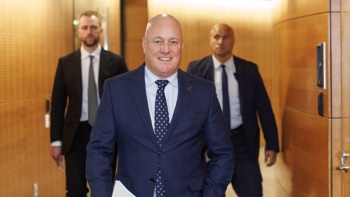The government is responding to new data showing that over a tenth of Kiwis aged 15 to 24 are not in employment, education or training.
Data from 2019 showed the percentage of young Kiwis to fall into this category rose to 11.6 per cent from 10.7 per cent last quarter.
The Ministry of Social Development and Auckland Business Chamber have launched an initiative dubbed the Youth Ready Employer Programme, which has been designed to enable young people to transition into the workforce, rather than becoming dependent on the benefit.
The function of the programme is two-fold: firstly, in guiding employers into recruiting and retaining young talent; and secondly, in better preparing younger New Zealanders for the challenges of applying for jobs and starting their careers.
The programme comprises a range of online resources, including manuals, templates for job descriptions and guidelines on how to ensure your organisation is doing enough to attract young talent.
There's also a Youth Ready Employer Charter designed to give employers an indication of how youth-ready they are when measured against an international benchmark of other companies that have committed to the programme.
Local employers can also acquire a Youth Ready Employer Certificate once they have shown the steps taken to ensure that their workplaces offer growth opportunities for young workers.
"We're bringing some different thinking and making it easy for employers to effectively engage with a younger workforce and create work environments that make them want to stay," said Employment Minister Willie Jackson.
To bring the project to life, the Ministry of Social Development and Auckland Business chamber flew British entrepreneur Jack Parsons to New Zealand to talk about the importance of giving young people access to opportunities in the local workforce.
Twenty-five-year-old Parsons is the brain behind The Youth Group, an organisation that works with over 200 UK-based employers to help people aged 18 to 30 transition into fulfilling work.
The programmes Parsons developed in the UK have been integral in developing the Youth Ready initiative currently being developed in the local market.
Parsons' motivation for this cause comes from a personal perspective, having endured some disappointing career advice when he was still at school.
"I was coming up to my GCSEs and the form tutor gave the students a list of sixth forms, which is the next stage toward university, and then she came up to me and gave me a list of construction sites that I should go and work on," recalls Parsons.
"It was very patronising. It gave me a sense of doubt and a sense of embarrassment."
This experience of being pigeon-holed, based entirely on his academic performance, would have a powerful impact on the thinking that would eventually go into the Youth Group.
"My mission now is to break down doors so other people can walk through. And those others are young people of all backgrounds," he says.
Parsons says that one of the biggest problems when it comes to youth employment is that some opportunities are limited from a socio-economic perspective.
"You can't become what you can't see. And some opportunities are not even presented [to those in lower socio-economic groups]. There aren't enough role models saying: 'You know what, I came from the same cloth as you, I was in the same neighbourhood, and now I'm working in the city in a bank.'
"Instead, what they are given is: 'Oh you're from that type of background, you should be over here'. And actually, that response is just setting up the world to fail."
These comments are poignant off the back of New Zealand filmmaker Taika Waititi's historic win at the Academy Awards, particularly given the emphasis Waititi placed on his role as an example for indigenous communities around the world.
Parsons says that the issues faced by minority communities in New Zealand are no different to those faced elsewhere in the world.
"We also have young people from minority groups who are isolated in the centre of London. There are simply fewer opportunities for young people from disadvantaged backgrounds."
Parsons says his programme isn't designed as a silver bullet that will fix these issues overnight.
"Every company is at a different stage. Some are really good at connecting with young people. Some are really bad at retaining people. But they will all now have access to these resources when they need them."
Parsons says that one of the biggest issues businesses have when it comes to employing young people is that they simply don't know what to do with them.
"You have great intentions to bring a young person into your organisation, they start, you give them to a junior staffer, who just doesn't know what to do. The next thing, they're off making the tea," he says.
"The young person gets disconnected because they've been sold a dream."
This isn't the employer's fault, says Parsons. It's simply a case that no one has ever laid out a structured plan of how to deal with the challenge of those first few weeks of a newcomer's careers.
The whole aim of his programme, he says, is finally to give employers a resource that they can rely on to ensure they don't disappoint younger staff members from day one.
Take your Radio, Podcasts and Music with you









